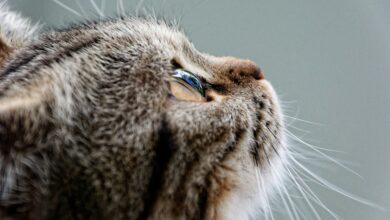The C.W. Park USC Lawsuit Unveiled: A Deep-Dive Analysis and Future Projections

Introduction
In the high-stake corridors of academic development, a lawsuit that has reverberated through the very foundation of higher education has emerged. The C.W. Park USC lawsuit, with its complex tendrils and critical underpinnings, merits detailed scrutiny. This legal imbroglio encompasses not just the reputable educational institution of the University of Southern California (USC) but also the influential legacy of a renowned academic.
Allegations of discrimination and wrongful termination have elicited emotional and intellectual discourse, setting the stage for what could be a landmark precedent in academia. Our analysis will unravel the nuances of this case, examine its broader implications, and parse through the granular legal wrangling that is shaping the narrative on C.W. Park, USC, and the future of educational governance.
A Contender’s Tale: The Origins of the C.W. Park USC Lawsuit
The story at the heart of the C.W. Park USC lawsuit begins with the distinguished career of Dr. C.W. Park, a formidable force in the academic landscape. A prominent figure at USC since the mid-1990s, Dr. Park earned accolades for his contributions to the field of marketing and consumer psychology. His research and teachings were not only influential but also aligned closely with the progressive ethos of USC’s academic mission.
However, in the unforeseen chapters of his tenure, allegations of discriminatory conduct against an assistant in his department surfaced. These assertions snowballed into a chain of events leading to Dr. Park’s termination, the subsequent lawsuit, and a division between those asserting administrative justice and supporters rallying behind academic freedom.
Unveiling the Legal Battlefield
The lawsuit proceeded to unveil a legal battlefield where employment laws, academic autonomy, and the very ethics of university governance have been thrust into the spotlight. With both parties presenting rigorous arguments that are anchored in legal precedent and institutional policy, the case is nothing short of a test of the legal limits within an academic context.
Key to the plaintiff’s case is the demonstration that USC’s actions were not only a response to the initial discrimination complaint but also a violation of Dr. Park’s rights and standing within the university community. USC, on the other hand, seeks to uphold its anti-discrimination policies, claiming that the termination was a justifiable decision based on credible evidence of wrongdoing.
The University and Its Community: A Divided House
The lawsuit has not only divided the administration and faculty but also poses the question of what is fair in addressing internal disputes within an academic framework. The intersection of ethical considerations, due process, and the practicalities of managing a prestigious institution come into stark relief, challenging the community to re-evaluate its values and processes.
Beyond the courtroom, the lawsuit has also ignited conversations around the broader issues of diversity, equity, and inclusion within academia. USC, known for its initiatives in these areas, is now confronted with the need to reconcile its public commitments with the institutional behaviors under scrutiny.
A Pattern Unfolded: C.W. Park USC and Similar Legal Battles
An analysis of this case cannot be complete without contextualizing it within the broader tapestry of similar legal battles across the nation’s education landscape. There is a discernible pattern emerging where academic institutions are increasingly challenged on their practices, particularly regarding the treatment of faculty members involved in discrimination allegations.
The comparison with other high-profile cases highlights a growing trend where universities face significant legal and reputational risks if they are perceived to falter in upholding their stated values. The outcomes of these cases could set enduring precedents for accountability and transparency in higher education that extend well beyond the parties directly involved.
Peering Into the Legal Crystal Ball
What does the future hold for the C.W. Park USC lawsuit? With expert testimony, motions, and discovery phases underway, the legal process is set to be protracted and detailed. Despite the inherently unpredictable nature of litigation, some indicators and elements of the case suggest emerging trends that could shape potential outcomes.
At the heart of the matter is the burden of proof — whether Dr. Park can adequately demonstrate that USC’s actions were punitive and discriminatory, or whether the university can evidence just cause for termination. The credibility of witness accounts, the integrity of evidence, and the interpretation of USC’s internal guidelines will all weigh heavily in the court’s deliberations.
Conclusion: An Ongoing Narrative
The C.W. Park USC lawsuit is not merely a legal dispute. It is a narrative of power and accountability, personal and institutional reputation, as well as the soul-searching of a venerable educational institution. Its resolution will resonate in academic circles and legal annals for years to come.
With so much at stake, the lawsuit serves as a mirror reflecting the complexities of navigating the intersection of academia, law, and social responsibility. It stands as a call to action for all stakeholders in education to redouble their efforts in fostering an environment that champions justice and upholds the sanctity of learning.
As we continue to observe the progression of this consequential legal saga, one thing is certain — it is not just the characters directly involved who are under scrutiny, but the very fabric of academic life and its guardians who must rise to meet the demands of an evolving and increasingly unforgiving world.



